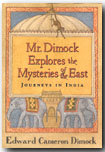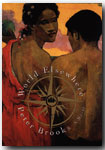Main Menu · Search ·Current Issue ·Contact ·Archives ·Centennial ·Letters to the Editor ·FAQs
 |
The Disciplined Mind: What All Students Should Understand, by Howard Gardner '65, Ph.D. '71 (Simon & Schuster, $24). A child should emerge from a K-12 education with a deep understanding of truth, beauty, goodness, and their opposites, as these values are understood by the society in which the student lives. Gardner imagines a curriculum--by way of example--that explores the theory of evolution, Mozart's music, and the Holocaust. The author is professor of education, codirector of Harvard Project Zero, and adjunct professor of psychology.
Expecting Adam: A True Story of Birth, Rebirth, and Everyday Magic, by Martha Beck '85, Ph.D. '94 (Times Books, $23.95). The book begins with a woman who has a parrot on her shoulder channeling a message from the Becks' three-year-old son, who has Down syndrome and does not speak. The action happens half at Harvard, where Beck and her husband, John '82, Ph.D. '89, spent 10 achievement-driven years, and half in a spiritual world in which the Becks redefined their values. The author, who has plenty of humor, worries that she will be lumped together with "every New Age crystal kisser who ever claimed to see an angel in the clouds over Sedona." But her story keeps unfolding and she can't resist the telling of it.
Creating Mind: How the Brain Works, by John E. Dowling '57, Ph.D. '61 (Norton, $24.95). The Cabot professor of natural science introduces the general reader to the brain, first to the nuts and bolts of the thing, then to its function in vision, perception, language, memory, emotion, and consciousness.
Blue Blood, by Pamela Thomas-Graham '85, M.B.A.-J.D. '89 (Simon & Schuster, $23). In this second in a series of Ivy League mysteries, Harvard economics professor Nikki Chase straightens out matters homicidal in New Haven.
 |
Henry F. du Pont and Winterthur: A Daughter's Portrait, by Ruth Lord (Yale University Press, $27.50). Harry du Pont gained admission to the Harvard class of '03 despite entrance-score grades of two Cs and seven Ds. He could pay the tuition. But "his academic life there was almost as joyless as it had been at Groton," writes Lord in a biography that is affectionate but free of filial sentimentality. Either through shyness or fear of rejection, du Pont socialized little. In his third year, he began to study horticulture at the Bussey Institution and got a glimmer of what he might be good for. The once hopeless misfit achieved distinction as a connoisseur and collector of American decorative arts, horticulturist, and cattle breeder, and left the world Winterthur, a treasure house of a museum.
The Four and the One: In Praise of String Quartets, by David Rounds '64, with the help of the Lafayette Quartet (Lost Coast Press, $16.95, paper). A high-school English teacher and a string quartet addict, Rounds considers the quartet as music, as a community, and as a career. In an appendix, he offers a listener's guide to the best of the repertory.
Against the Tide: The Fate of the Cape Cod Fisherman, by Richard Adams Carey '73 (Houghton Mifflin, $23). After Harvard, Carey worked in a northwestern sawmill and has since divided his time between Alaska and New England. He recently spent a year with four fishermen, sharing their work, learning about luck with winds and tides, and appraising the squalls of fisheries law and politics that threaten to swamp their boats.
Speaking Vegetarian: The Globetrotter's Guide to Ordering Meatless in 197 Countries, by Bryan Geon '92 (Pilot Books, $14.95, paper). "Ina son wane abu wanda baya da nama" will get you something without meat for your dinner in southern Niger.